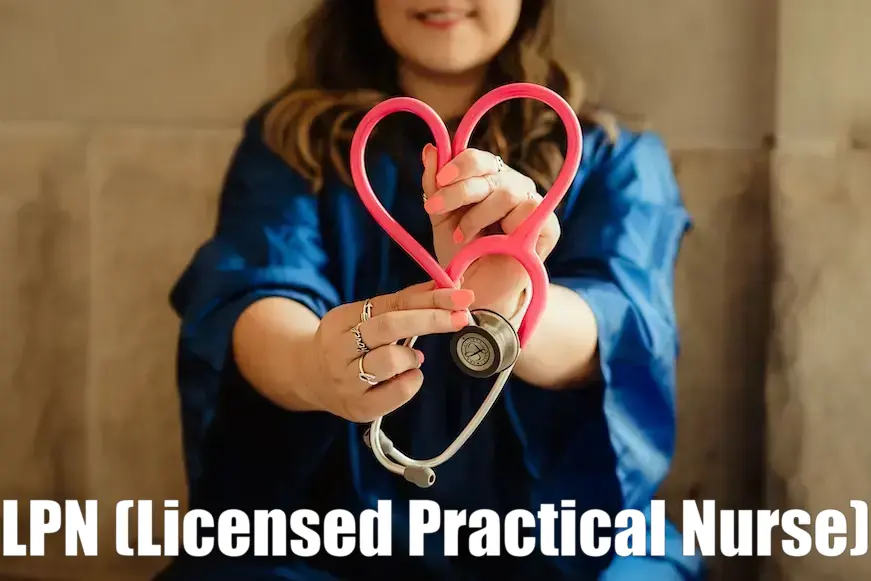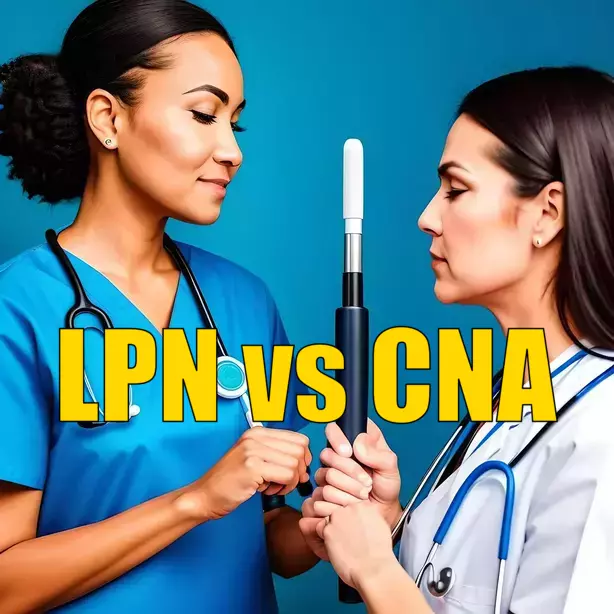As a licensed practical nurse, you play an integral role in providing quality care to patients and supporting registered nurses and physicians.
Your job requires a combination of clinical skills, critical thinking, compassion, and physical stamina.
While the responsibilities of an LPN can vary significantly based on your place of work.
You will typically assist RNs and doctors with essential daily care activities, administer medications and treatments, monitor patient conditions, and provide emotional support to patients and their loved ones.
This comprehensive guide will explore the key aspects of your role as an LPN, including your daily duties, necessary qualifications and certifications, career opportunities and advancement, and strategies to improve your nursing practice.
Understanding the full scope of your responsibilities and honing your skills are essential to providing the best care to your patients and advancing your career.
Whether you are a newly licensed LPN or have years of experience, this resource can serve as an invaluable tool to strengthen your nursing practice.
- What Is an LPN? Defining the Licensed Practical Nurse Role
- Educational Requirements to Become an LPN
- LPN Job Duties and Responsibilities
- LPN Scope of Practice and Limitations
- LPN Salary and Job Outlook Information
- Highest Paying States for LPNs
- How to Become an LPN in 2023
- How to Get Licensed as an LPN
- Finding the Right LPN Job for You
- Advancing Your Career: LPN to RN Bridge Programs
- LPN FAQs – Answers to Common Questions About Being a Licensed Practical Nurse
- Conclusion
What Is an LPN? Defining the Licensed Practical Nurse Role
As a licensed practical nurse (LPN), you play an important role in providing basic nursing care.
LPNs, also known as licensed vocational nurses (LVNs) in some states, work under the supervision of registered nurses (RNs) and physicians.
An LPN is a healthcare professional who completes a practical nursing program and passes the National Council Licensure Examination for Practical Nurses (NCLEX-PN).
LPNs provide routine care and assist patients with essential daily activities like bathing, feeding and ambulating.
You monitor patients and report any health changes to doctors and registered nurses.

LPNs typically have a high school diploma or equivalent and complete a state-approved practical nursing training program, which usually leads to a certificate or associate’s degree.
These programs prepare you to pass the NCLEX-PN licensing exam. Once licensed, LPNs must renew their license periodically based on state requirements.
The specific duties of an LPN vary significantly based on your place of employment.
You may find work in hospitals, physicians’ offices, nursing homes, community health clinics or home health agencies.
Wherever you work, you can expect to check vital signs, dress wounds, collect samples for testing, administer prescribed medications, start intravenous lines (IVs), provide postnatal and postsurgical care, and more – all under the guidance of RNs and doctors.
With a growing aging population, the demand for LPNs and other healthcare workers is increasing.
If you’re looking for a rewarding career in nursing, becoming an LPN can be an excellent place to start.
With the proper training and licensing, you’ll be prepared to provide compassionate care and make a meaningful difference in people’s lives.
Educational Requirements to Become an LPN
To become an LPN, you must complete an accredited practical nursing program and pass the National Council Licensure Examination for Practical Nurses (NCLEX-PN).
To enroll in an LPN program, you typically need a high school diploma or equivalent.
LPN programs are offered at many community colleges, vocational schools, and private career schools.
These programs usually take about 1 year to complete and award a certificate or diploma.
Coursework in an LPN program covers nursing fundamentals, anatomy and physiology, pediatric nursing, maternity nursing, medical-surgical nursing, and psychiatric nursing.
You will gain hands-on experience through supervised clinical work in various healthcare settings.
After completing an LPN program, you must pass the NCLEX-PN to obtain licensure.
The exam assesses your ability to provide safe and effective nursing care.
You can schedule the NCLEX-PN through the National Council of State Boards of Nursing.

Some LPNs choose to pursue master’s degrees in nursing, such as the LPN to RN bridge programs, or LPN to BSN programs, to advance their careers.
These programs build upon your LPN knowledge and experience to prepare you for an RN role.
Additional education and certifications can open up more job opportunities and increase your earning potential as an LPN.
With the appropriate education and licensure, an LPN can have a long and rewarding career providing compassionate care and support to patients across a variety of healthcare settings.
The demand for LPNs is growing due to an aging population and increasing rates of chronic disease, so job opportunities abound for those willing to enter this noble profession.
LPN Job Duties and Responsibilities
As an LPN, your primary role is to provide basic nursing care under the supervision of registered nurses and physicians.
Your job duties typically include:
Monitoring Patients
You will monitor patients’ conditions, administering medications, changing bandages, and noting any adverse reactions.
You are responsible for properly documenting patients’ symptoms, vital signs, and any changes in their conditions.
Notify registered nurses and physicians immediately of any abnormal or concerning observations.
Assisting with Patient Care
LPNs assist registered nurses, physicians, and other healthcare professionals in providing direct patient care.
You will help patients with daily activities like bathing, feeding, and walking.
Explain procedures, tests, medications, and diets to patients and family members to alleviate anxiety and promote understanding.

Maintaining Medical Records
Accurately documenting all aspects of patient care is essential.
You will record patients’ medical histories, symptoms, test results, and responses to treatments.
All records must be comprehensive, precise and up-to-date to provide other healthcare professionals with a complete overview of patients’ conditions and care.
Following Physician’s Orders
LPNs administer physician-prescribed medications, treatments, and procedures.
You must verify that you have understood orders completely and follow them precisely as directed.
Never administer unauthorized medications or treatments.
Double check medication types, dosages, methods of administration, and timing to ensure patient safety.
Educating Patients
Provide patients and family members with information about health conditions, treatment options and methods of care.
Explain medication types, dosages and schedules to promote compliance. Offer guidance on lifestyle changes and home care techniques.
Address questions and concerns with patience and empathy.
LPNs shoulder significant responsibility in providing care and monitoring patients.
Close attention to detail, precision, competence and compassion are essential qualities for success in this role.
With oversight from registered nurses and physicians, LPNs make a meaningful difference in patients’ lives every day.
LPN Scope of Practice and Limitations
LPN Scope of Practice and Limitations
As an LPN, you will provide basic nursing care under the supervision of registered nurses and physicians.
Your scope of practice includes:
- Monitoring patients and reporting changes in conditions
- Administering prescribed medications and treatments
- Taking vital signs and dressing wounds
- Assisting patients with daily activities like bathing, dressing, and eating
However, there are certain limitations to the LPN scope of practice compared to RNs and physicians:
- LPNs cannot conduct initial patient assessments or diagnosis
- LPNs cannot develop or modify patient care plans
- LPNs cannot administer IV medications or blood transfusions
- LPNs cannot supervise or delegate to registered nurses
It is important to understand the boundaries of your role and not perform any tasks beyond your scope of practice.
Practicing outside your scope can put patients at risk and jeopardize your nursing license.
As an LPN gains more experience, additional responsibilities may be assigned at the discretion of supervising RNs and physicians.
However, core limitations on assessment, diagnosis, and modification of care plans will still apply.
LPNs seeking to expand their scope of practice should consider pursuing further education to become an RN.
With advanced certifications and degrees, RNs have significantly more responsibility and autonomy.
In summary, LPNs play an important role in providing compassionate patient care and support to the healthcare team.
By understanding your scope of practice and limitations, you can focus on delivering high quality care within the appropriate bounds of your license.
With the guidance of supervising nurses and physicians, LPNs can build on their experience over time to advance in their careers.
LPN Salary and Job Outlook Information
As an LPN, your salary will depend on factors like your level of education, years of experience, location, and employer.
According to the U.S. Bureau of Labor Statistics, the median pay for LPNs in the U.S. is around $47,000 per year. Actual salaries may range from $33,000 to $63,000 annually.
Education
LPNs with an associate’s degree in nursing may earn slightly higher pay than those with a certificate or diploma.
Continuing education and on-the-job training can also help increase your salary over time.
Experience
In general, the more years of experience you have, the higher your pay will be. LPNs with 20+ years of experience can earn over $60,000 per year.
However, salaries vary significantly based on location, employer, and other factors.
Location
Salaries tend to be higher in large metropolitan areas and certain regions of the country.
The top-paying states for LPNs are Alaska, Hawaii, District of Columbia, Massachusetts, and Nevada.
Rural and suburban areas typically offer lower pay.
Employer
LPNs employed by hospitals, physicians’ offices, and home health care services generally earn higher pay than those in nursing care facilities or community care facilities for the elderly.
LPNs in private practices and schools also tend to earn lower salaries.
The job outlook for LPNs is quite promising. According to the BLS, employment of LPNs and LVNs is projected to grow 11% from 2019 to 2029, which is much faster than the average for all occupations.
The aging population and increasing emphasis on community-based care will drive demand for LPNs in home health care services, community care facilities, and nursing homes.
In summary, while pay for LPN roles varies significantly based factors like location, experience, and employer, the overall job outlook is quite positive.
With the right education and opportunity, you can find a well-paying, rewarding career as an LPN.
Highest Paying States for LPNs
The top-paying states for LPNs are:

Alaska
Alaska offers the highest median pay for LPNs at $26.94 per hour or $56,000 annually.
The increased demand for healthcare in this rural state and the high cost of living contribute to the elevated pay scale.
Licensed practical nurses in Alaska work in hospitals, nursing homes, and community health centers providing basic nursing care.
California
In California, LPNs earn a median salary of $22.40 per hour or $46,700 per year. The large population and extensive healthcare system in California result in many job opportunities for LPNs. LPNs in California work under the supervision of registered nurses and physicians providing basic bedside care, administering medications, and monitoring patients.
Massachusetts
LPNs in Massachusetts earn a median pay of $25.89 per hour or $53,800 annually. The higher cost of living in Massachusetts is a factor in the increased compensation for LPNs. Licensed practical nurses find work in hospitals, physician offices, nursing homes, and rehab centers assisting RNs and doctors in providing essential healthcare services.
Hawaii
The tropical paradise of Hawaii provides LPNs a median salary of $24.83 per hour or $51,700 per year. The isolated nature of the Hawaiian islands and dependence on imports contribute to the higher pay for LPNs and other professions. LPNs care for patients in hospitals, clinics, nursing homes, and private residences under the guidance of registered nurses and physicians.
Nevada
In Nevada, the median pay for LPNs is $23.23 per hour or $48,400 annually. Nevada’s expanding elderly population and tourism industry drive the increased need for healthcare professionals like licensed practical nurses. LPNs work in hospitals, outpatient clinics, nursing homes, and doctors’ offices to provide basic nursing care and monitor patients’ conditions.
In summary, if pay is a motivating factor in your career choice, the highest- paying states for LPNs currently are Alaska, California, Massachusetts, Hawaii, and Nevada. Compensation is often influenced by factors like cost of living, demand for healthcare, and a state’s dependence on a particular industry. However, job satisfaction and opportunities for advancement are also important considerations when choosing where to work as an LPN.
How to Become an LPN in 2023
To become an LPN, you must meet several requirements and complete an accredited training program. Licensure and certification provide the credentials to practice as an LPN.
Education
Complete an accredited LPN training program, which usually takes about 1 year. LPN programs are offered at many community colleges, vocational schools, and some hospitals. Coursework includes basic nursing skills, anatomy, physiology, and pharmacology. You’ll gain hands-on experience during supervised clinical work.
Licensure
All states require LPNs to be licensed. Passing the National Council Licensure Examination for Practical Nurses (NCLEX-PN) exam is required. The exam tests your knowledge and skills in areas like basic nursing care, health promotion, and maintenance. Apply for licensure through your state’s nursing board. Licensure allows you to practice as an LPN.
Certification
Optional certifications can demonstrate your competence to employers. The National Association for Practical Nurse Education and Service (NAPNES) offers several certifications for LPNs. Requirements typically include a certain amount of work experience, continuing education credits, and passing an exam. Maintaining certification usually involves periodic renewal, which helps ensure you stay up-to-date with advancements in the nursing field.
Continuing Education
Most states require a certain number of hours of continuing education for LPNs to maintain licensure. Typically, around 15-20 hours of CE credits are needed every 1-2 years. CE helps strengthen your nursing knowledge and skills over your career. Options for earning CE credits include attending conferences, completing online courses, or enrolling in college classes.
By meeting the education, experience, and testing requirements, you’ll be well on your way to beginning your career as a licensed practical nurse. Staying up-to-date with trends in practical nursing through continuing education and certification will help you excel in your role. The career of an LPN can be very rewarding.
How to Get Licensed as an LPN
To become an LPN, you must complete an accredited practical nursing program and pass the National Council Licensure Examination for Practical Nurses (NCLEX-PN).
Education
LPN programs are offered at many community colleges, vocational schools, and private career schools. Programs usually take about 1 year to complete and award a certificate or diploma. Coursework includes anatomy, physiology, nursing skills, and related subjects. Clinical experiences are also required, allowing you to gain supervised experience providing patient care.
Upon graduating from an LPN program, you must pass the NCLEX-PN exam. This computerized exam tests your knowledge and abilities in areas like nursing care for children, surgical care, maternity care, and psychiatric care. After passing the exam, you can apply for licensure with your state board of nursing. Licensing requirements vary somewhat by state but usually involve a background check, application fee, and maintaining a certain number of continuing education credits.
Career Advancement
With experience, LPNs can take on more responsibility and advance their careers. Some options include:
- Becoming an LPN Charge Nurse: Overseeing other LPNs and unlicensed staff on a unit.
- Specializing in a certain area of care like geriatrics, pediatrics or mental health. Obtaining additional certifications can demonstrate your expertise.
- Transitioning to an RN role through an LPN to RN bridge program. You can then advance further to become an Advanced Practice Registered Nurse (APRN).
- Moving into healthcare administration or education. Experienced LPNs are well suited for roles like clinical coordinators, unit supervisors, and nursing instructors.
To advance as an LPN, look for opportunities to strengthen your knowledge and skills through continuing education and on-the-job experience. Developing strong leadership qualities and considering further nursing education and credentials can open up more career possibilities. With hard work and perseverance, you’ll find many paths for career progression as an LPN.
Finding the Right LPN Job for You
As an LPN, you have many options when it comes to finding a job. With the high demand for licensed practical nurses, job opportunities abound in various healthcare settings. Some of the most common work environments for LPNs include:
Hospitals
Hospitals employ LPNs in areas such as medical/surgical units, emergency rooms, intensive care units, and rehabilitation centers. In a hospital setting, you would provide basic nursing care under the supervision of registered nurses and physicians.
Nursing Homes
Nursing homes are a major employer of LPNs. There, you would care for elderly and disabled residents by assisting with daily activities, administering medications, and monitoring health conditions. This can be a rewarding role for someone interested in geriatric care.
Doctor’s Offices
Many physicians employ LPNs to assist with patient care duties like recording vital signs, administering injections, and collecting samples for testing. In a doctor’s office, you may work closely with one or more physicians, nurses, and other healthcare professionals. This can provide stability and regular hours.
Home Health Care
For LPNs interested in more autonomy, home health care agencies provide an attractive option. As a home health nurse, you would travel to clients’ homes to assist with medical needs, wound care, physical therapy, medication management, and activities of daily living. This role requires excellent communication and assessment skills to provide quality care with limited supervision.
In summary, there are many fulfilling career paths for licensed practical nurses. With various work environments to choose from, you can find an LPN job that matches your experience, interests, schedule, and desired level of responsibility. The high demand for LPNs means many job openings and opportunities for career advancement in this vital role.
Advancing Your Career: LPN to RN Bridge Programs
As an LPN, you have solid experience providing patient care. However, you may eventually want to advance your nursing career by becoming an RN. LPN to RN bridge programs allow you to leverage your current license and experience to transition into a registered nursing role.
LPN to RN bridge programs typically take around 2-3 years to complete, depending on credits transferred from your LPN program. Bridge programs award either an associate’s degree in nursing (ADN) or a bachelor’s degree in nursing (BSN). An ADN usually takes 2 years, while a BSN takes 3-4 years. Some schools offer part-time, online or accelerated options.
To enroll in an LPN to RN bridge program, you must hold an active LPN license. Programs often grant credit for some LPN coursework and clinical hours. However, you will still need to complete additional general education and nursing courses required for an RN degree. This includes more advanced coursework in areas like health assessment, nursing management, and nursing research.
As an RN, you will have a wider scope of practice and more career opportunities. RNs can advance into leadership roles like charge nurse or director of nursing. RNs typically earn higher pay than LPNs. According to the Bureau of Labor Statistics, the median pay for RNs in the U.S. is over $75,000 per year.
LPN to RN bridge programs provide an efficient path for career progression. By building on your LPN education and experience, you can advance into an RN role, open up more career opportunities, and gain increased pay and responsibility. If you’re ready to take the next step in your nursing career, explore LPN to RN bridge programs at accredited nursing schools.
LPN FAQs – Answers to Common Questions About Being a Licensed Practical Nurse
As an LPN, you likely have many questions about your role and responsibilities. Here are answers to some of the most common FAQs from licensed practical nurses:
What are the primary duties of an LPN?
The central roles of an LPN include providing basic nursing care under the supervision of registered nurses and physicians. Your core duties involve monitoring patients’ health, administering medications and treatments as prescribed, collecting samples for testing, dressing wounds, and assisting patients with daily activities. LPNs work in hospitals, nursing homes, physician’s offices, and home health care settings.
Do I need any special certifications or licenses?
To practice as an LPN, you must have a license in your state. All states require LPNs to graduate from an accredited LPN program and pass the NCLEX-PN exam. Some employers may require or prefer additional certifications in CPR, basic life support, or a specialized area of practice like IV therapy or wound care.
What is the difference between an LPN and RN?
The key differences between LPNs and RNs lie in their education, scope of practice, and pay.
RNs have more advanced nursing education, usually earning an associate’s or bachelor’s degree in nursing.
RNs also have a wider range of responsibilities, including complex patient care and supervision of LPNs.
Due to their additional education and duties, RNs typically earn higher pay than LPNs. However, LPNs still play an important role in providing hands-on patient care and support to RNs.
How much do LPNs earn?
According to the U.S. Bureau of Labor Statistics, the median pay for LPNs in the United States is around $47,000 per year.
Exact wages depend on factors like location, years of experience, and employer.
LPNs typically earn the highest pay in hospitals, physician’s offices, and nursing care facilities. With experience and specialization, pay for an LPN role may increase up to $60,000 annually.
In summary, LPNs provide essential basic nursing care and support to patients under the guidance of RNs and doctors.
If you have compassion for helping others, the necessary licensure, and an aptitude for the technical aspects of nursing, a career as an LPN can be very rewarding.
Conclusion
As you have learned, the role of a licensed practical nurse is both challenging and rewarding.
LPNs play a crucial part in providing compassionate care and supporting physicians and registered nurses.
With the proper training, licensing, and a commitment to ongoing education, an LPN career can offer stability, meaningful work, and the opportunity to truly help people.
Though the job outlook and salary may vary in different areas, the demand for LPNs is strong across the healthcare system.
If you pursue this career path, you will have the chance to gain valuable experience, build close relationships, and make a real difference in the lives of patients and their loved ones every single day.
The role of an LPN is essential and allows you to start or advance your career in nursing.


